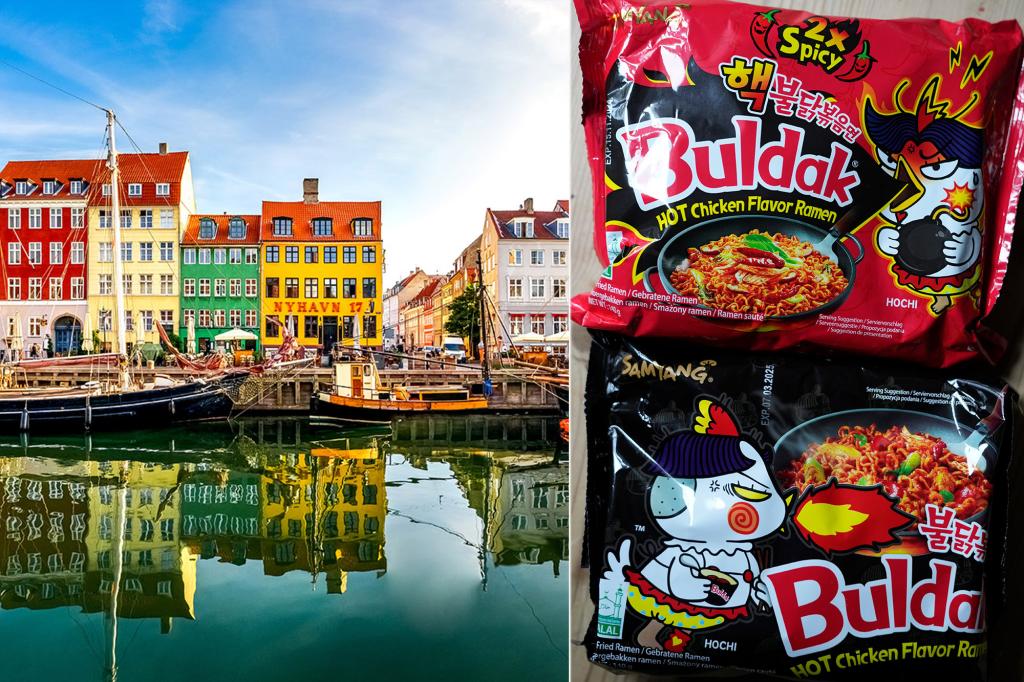The food fight between Danish officials and South Korean company Samyang has heated up, with the Danish Veterinary and Food Administration recalling several ramen noodle products due to high capsaicin levels. Capsaicin is a chili pepper extract that can cause various symptoms when ingested in extreme amounts. The recall specifically targeted three Samyang instant ramen products: Buldak 3x Spicy & Hot Chicken, 2x Spicy & Hot Chicken, and Hot Chicken Stew. The Danish organization advised consumers to either discard the products or return them to the store where they were purchased.
Samyang responded to the recall by stating that the quality of their products is not the issue, but rather that they are simply too spicy for some consumers. The company noted that the products are being exported globally and this is the first time they have been recalled for being too spicy. The recall sparked mixed reactions on social media, with some users agreeing that the ramen was excessively hot while others criticized the ban, pointing out that the packaging clearly warns of potential spiciness. Some individuals took the opportunity to poke fun at Denmark, suggesting that the country only enjoyed bland foods and could not handle spicy dishes.
Social media users shared their personal experiences with the Samyang ramen, with one individual noting that even their spouse, who loves spicy food, struggled to handle the 3x Spicy variety. Despite the different opinions, the issue highlighted the cultural differences in food preferences between countries. The recall raised questions about the threshold for spiciness in different regions and how companies can accommodate varying preferences. The incident also shed light on the challenges of producing and marketing food products for a global audience while still maintaining cultural authenticity.
The clash between Denmark and Samyang over the spiciness of ramen noodles underscored the importance of understanding cultural differences in food preferences and tolerance levels for spicy foods. While the Danish recall was based on concerns about capsaicin levels causing potential harm to consumers, the South Korean company maintained that the issue was not with the quality of the products but rather with the spiciness. The incident sparked a debate among social media users, with some supporting the recall while others criticized it, highlighting the complex nature of food regulations and cultural nuances in taste preferences.
Overall, the food fight between Denmark and Samyang serves as a reminder of the diverse culinary landscape and the challenges of catering to a global market with varying tastes and preferences. The incident also sparked conversations about the impact of cultural differences on food production and consumption, and the importance of considering these factors when developing and marketing food products internationally. As both companies and consumers navigate these complexities, it is essential to find a balance that respects cultural authenticity while also meeting consumer demands in a globalized world.















